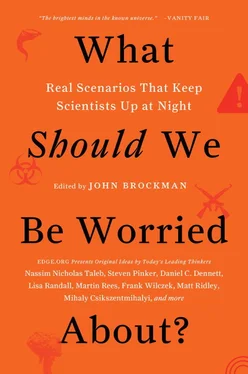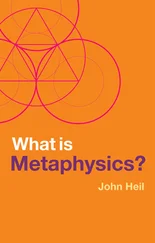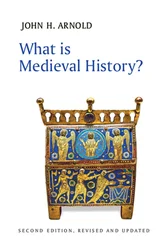We have, it seems, become so accustomed to working on a keyboard and generating nicely laid-out pages that we are rapidly losing (if, indeed, we have not already lost) the habit—and love—of scribbling with paper and pencil. Our presentation technologies encourage form over substance. But if (free-form) scribbling goes away, then I think mathematics goes with it. You simply cannot do original mathematics at a keyboard. The cognitive load is too great. The increasing availability of pens that record what is being written may, I suppose, save the day. But that’s not substantially different from taking a photo or scan of a page, so I’m not so sure that’s the answer. The issue seems to be the expectation that our work should meet a certain presentation standard. In a world dominated by cheap sophisticated presentation technologies, paper-and-pencil work may go the way of the dodo. And if that happens, mathematics will no longer advance. As a living, growing subject, it will die. RIP mathematics? Maybe. We will likely know for certain within twenty years.
SHOULD WE WORRY ABOUT BEING UNABLE TO UNDERSTAND EVERYTHING?
CLIFFORD PICKOVER
Author of the Pickover Trilogy: The Medical Book, The Physics Book , and The Math Book
I used to worry that our mathematical and physical descriptions of the universe grow forever but our brains and language skills remain entrenched. Some of our computer chips and software are becoming mind-numbingly complex. New kinds of mathematics and physics are being discovered or created all the time, but we need fresh ways to think and understand.
I used to worry that we will understand less and less about more and more. For example, in the last few years, mathematical proofs have been offered for famous problems in the history of mathematics, but the arguments have been far too long and complicated for experts to be certain they are correct. Mathematician Thomas Hales had to wait five years before expert reviewers of his geometry paper, submitted to the journal Annals of Mathematics, finally decided that they could find no errors and that the journal should publish Hales’ proof, but only with the disclaimer saying they were not certain it was right! Moreover, mathematician Keith Devlin has admitted in the New York Times that “The story is that mathematics has reached a stage of such abstraction that many of its frontier problems cannot be understood even by the experts.” [f] Susan Kruglinski, “When Even Mathematicians Don’t Understand the Math,” New York Times , May 25, 2004.
Israeli mathematician Doron Zeilberger recently observed that contemporary mathematics meetings were venues where few people could understand one another. The “burned-out” mathematicians just ambled from talk to talk, where “they didn’t understand a word.” Zeilberger wrote in 2009, “I just came back from attending the 1052nd AMS [American Mathematical Society] (sectional) meeting at Penn State, last weekend, and realized that the Kingdom of Mathematics is dead. Instead, we have a disjoint union of narrow specialties…. Not only do [the mathematicians] know nothing besides their narrow expertise, they don’t care!” Incidentally, Zeilberger considers himself an ultrafinitist, an adherent of the philosophy denying the existence of the infinite set of natural numbers (the ordinary whole numbers used in counting). More startling, he suggests that even very large numbers don’t exist—say, numbers greater than 10 raised to the power of 10 raised to the power of 10 raised to the power of 10. In Zeilberger’s universe, when we start counting—1, 2, 3, 4, etc.—we can seemingly count forever; but eventually we will reach the largest number, and when we add 1 to it, we return to zero!
At the risk of further digression into the edges of understanding, consider the work of Japanese mathematician Shinichi Mochizuki. Some of his key proofs are based on “inter-universal Teichmüller theory.” As he develops future proofs based on this mathematical machinery, which was honed over decades in many hundreds of pages, how many humans could possibly understand this work? What does it even mean to “understand” in contexts such as these? As mathematics and subatomic physics progress in the 21st century, the meaning of “understanding” obviously must morph, like a caterpillar into a butterfly. The limited, wet human brain is the caterpillar. The butterflies are our brains aided by computer prosthetics.
Should we be so worried about being unable to understand subatomic physics, quantum theory, cosmology, or the deep recesses of mathematics and philosophy? Perhaps we can let our worries slightly recede and just accept our models of the universe when they’re useful. Today we use computers to help us reason beyond the limitations of our intuition. Computer experiments are leading mathematicians to discoveries and insights never dreamed of before the ubiquity of computers. Computers and computer graphics allow mathematicians to discover results long before they can prove them formally, and they open entirely new fields of mathematics. The educator David Berlinski once wrote, “The computer has… changed the very nature of mathematical experience, suggesting for the first time that mathematics, like physics, may yet become an empirical discipline, a place where things are discovered because they are seen.” W. Mark Richardson fully understands that scientists and mathematicians must learn to live with mystery. In a 1998 article in Science , he wrote:
As the island of knowledge grows, the surface that makes contact with mystery expands. When major theories are overturned, what we thought was certain knowledge gives way, and knowledge touches upon mystery differently. This newly uncovered mystery may be humbling and unsettling, but it is the cost of truth. Creative scientists, philosophers, and poets thrive at this shoreline.
THE DEMISE OF THE SCHOLAR
DANIEL L. EVERETT
Linguistic researcher; dean of arts & sciences, Bentley University; author, Language: The Cultural Tool
On April 22, 1961, the futurist and inventor R. Buckminster Fuller offered a futuristic vision for higher education, a vision he later published as Education Automation: Freeing the Scholar to Return to His Studies . His idea was that the population explosion and the emerging revolution in information technology called for a massive scaling-up of higher education. Perhaps the best recommendation from his book is that universities should “[g]et the most comprehensive generalized computer setup with network connections to process the documentaries that your faculty and graduate-student teams will manufacture objectively from the subjective gleanings of your vast new world- and universe-ranging student probers.” His view was that this would lead to improvements in society and universities across the board, leaving scholars largely free of teaching and able to dedicate their time almost exclusively to research.
Massive Online Open Courses, MOOCs, seem on the surface to have achieved Fuller’s vision. Yet even as MOOCs reach more students with high-quality lectures than any format in history, they simultaneously threaten the survival of scholarship. The reason is that rather than engaging the population in research and development via mass access to teacher-scholars, MOOCs lead us closer to the vo-tech-ization of higher education. Instead of leading people to deep thought, new ideas, and useful applications, MOOCs too often facilitate the cheaper earning of credentials (which some online educators already refer to as “badges,” reminiscent of the Boy Scouts) that certify skill acquisition. And along with this shift in the goals and methods of higher education, the disappearance of scholarship as a profession seems ever more probable. This worries me. It should worry you.
Читать дальше












